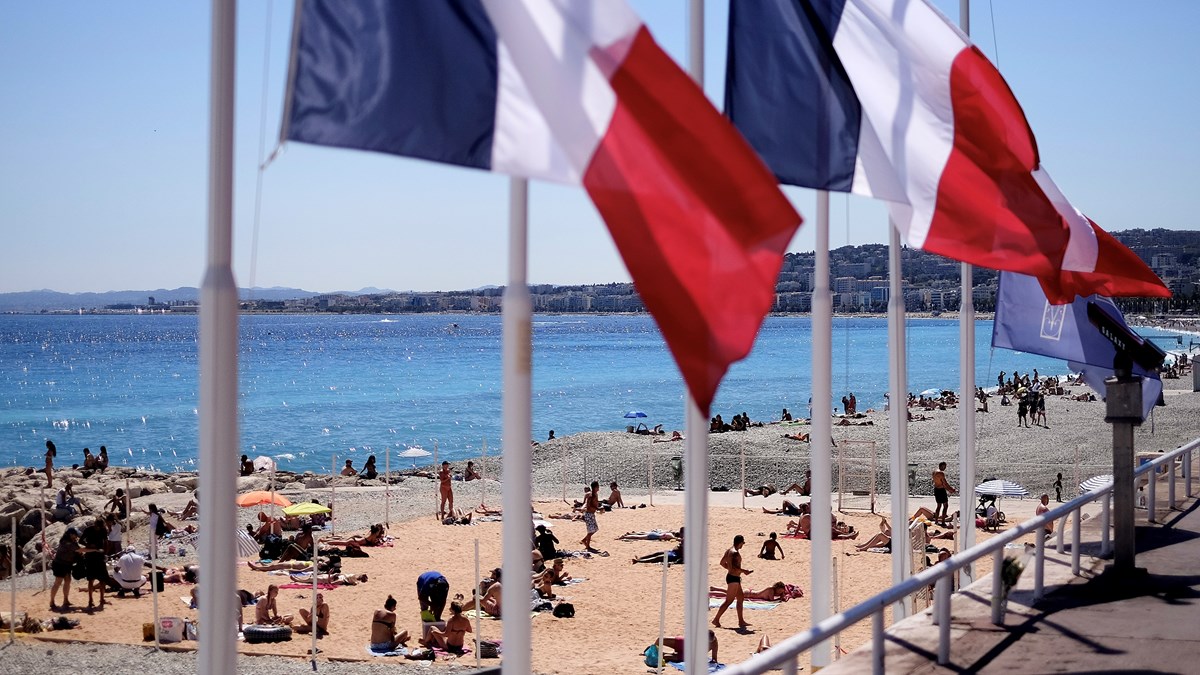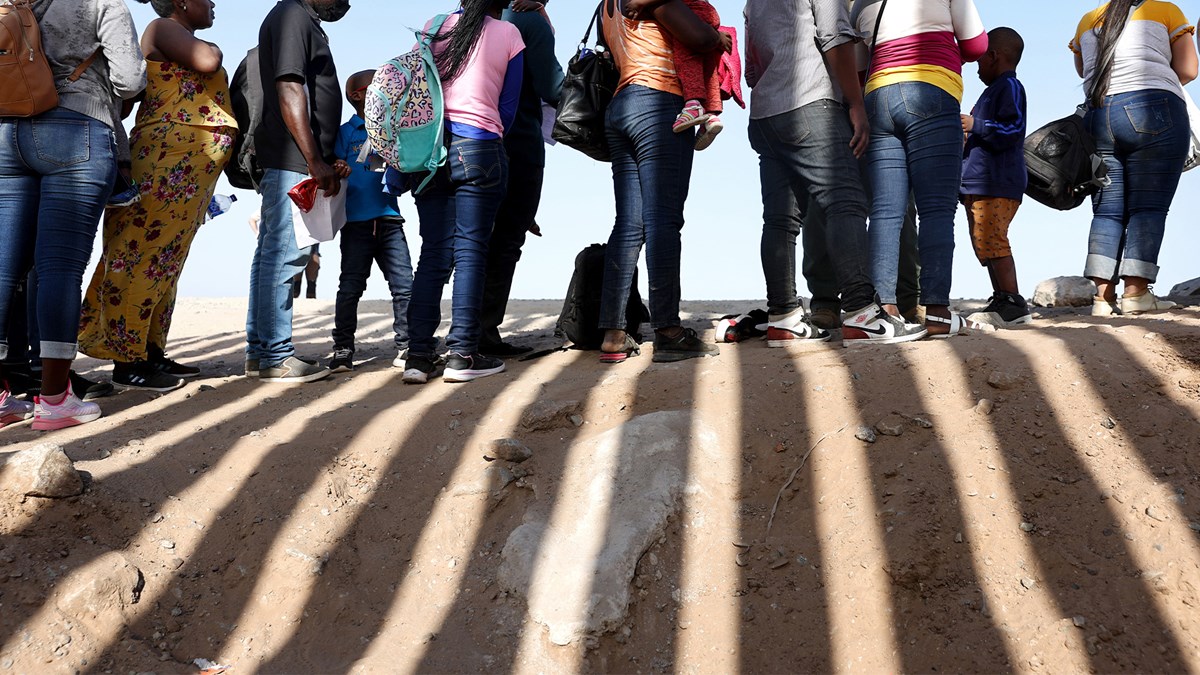The Église Évangelique de Houlgate is situated in the charming and quiet town of Houlgate, two hours from Paris on the Normandy coast. With its red brick exterior from the 1950s, the Protestant church sits in an ideal location—visible at the entrance to the town and overlooking the beach—for a perfect escape from the fast-paced life of Paris.
Houlgate has 1,711 year-round inhabitants, but the summer season can bring nearly 15 times the amount of people to the small city. This complicates shopping, traffic, and lines in the boulangerie, but it also boosts church attendance. Tourists flock to the coast and some pay a Sunday morning visit to the city’s only Protestant church.
Why the sudden rush of vacationers? The simple answer is that summers in France are taken very seriously. Not only is it acceptable to travel in France during July and August, but it is encouraged by the culture. Protestant churches all over France, like the one in Houlgate, have to adapt to this cultural tradition by changing up their usual rhythm in order to keep people coming through their doors.
With 25 paid vacation days available to most employees, businesses are closed for weeks or months in the summer season, and administrative workers send automated emails declaring their absence until la rentrée in September. Not surprisingly, church attendance fluctuates wildly: Some churches go so far as to shut their doors during the summer while others have an entirely different congregation during the season.
“We see [a 50 percent] growth during the summer season, thanks to tourists,” said Cyril Poly, a longtime member at Église Évangelique de Houlgate.
But not all seaside areas attract tourists. Romaric Lacroix, one of four pastors at the Centre Evangélique Protestant (CEP) in Marseille, says that attendance is between 150 to 200 people during most of the year. But that number drops to about 70 people during the summer months.
“So we adapt,” said Lacroix. “[Because of people leaving for vacation,] we have less personnel. We suspend all weekly church activities and we also adapt the church services on Sundays because it’s very hot out!” Shorter services or sermons are one way to beat the heat in older church buildings, often built without air conditioning.
This period of decreased church activity allows pastors to relax before the new season begins while also re-evaluating current church programs and activities, he says.
In France’s capital, however, not much changes. While many Parisians escape city life during the summer, churches remain steady.
“Naturally, there are fewer people in summer, as most are away on vacation,” said Tina Raveloson, a Canadian expat living in Paris, who attends C3NYC Paris. “[But] the program remains the same, with a few additional picnics [among small groups] … Pastors can take vacations whenever they wish. We have a pastoral team, so if the senior pastor is on leave, there’s always someone to bring the message on Sundays.”
French pastors and churches are constantly looking for ways to offer something when needed. And Protestant pastors continue to keep their churches open during the summer, despite low church attendance in certain regions.
Protestant Christians only make up three percent of the French population, which makes evangelizing during the summer an essential part of French ministry. “It is fundamental that we do not close our doors [during the summer],” said Lacroix.
Staying open with regular Sunday services allows the church to reach out to new churchgoers. “You see people coming in [for the first time], so it’s a good time to contact people,” he said.
French journalist David Metreau, former editor in chief of the publication Christianisme Aujourd’hui, echoed this sentiment after experiencing church life outside of Paris and in Drôme, a region in southeastern France. “[Even if] people don’t necessarily leave for vacation, everything is slowed down during the summer season, which is maybe a default,” said Metreau. “Maybe people also need spiritual support during the summer.”
Unlike certain communities like Taizé, an ecumenical monastic community in eastern France, there are many French Protestant organizations that exist only for the summer season. While many écoles bibliques de vacances—vacation Bible schools —exist in France, it is much less popular than Christian camping centers known as colonies de vacances chrétiennes. These summer camps welcome families who are on vacation from any part of the country for a week or two of fellowship with other believers.
Originally created at the end of the 19th century in order to get working-class children out of poverty and pollution, summer camps became an integral part of French culture. During the 1950s and 60s, France saw a peak in summer camps with over four million children spending their summer at a colo.
Summer camp popularity has been on the decline in France since the 1990s—barely one million attendees participated in 2017. To cope with the seeming loss of interest, camps are now rebranding, such as through offering shorter stays and special activities to attract younger generations.
Among millennials and Gen Z, newer Christian gatherings are also taking place. This May, more than 6,000 teens gathered a couple hours outside of Lyon for ECHO, an Assemblies of God.
Festivals are also becoming increasingly popular amongst younger generations. Christ en Scène, a new Christian music festival in the Seine-et-Marne region, is taking advantage of the French summer season to start a music festival with artists like Hillsong Youth France. Starting on August 26, the festival consists of two days filled with concerts, times of prayer, testimonies, workshops, games, and music.
In a country with very little religious expression, these festivals and gatherings allow for young people and families to build new connections and fellowship with other believers.
As France slows down for summer, American tourists flock to Paris to enjoy the sights and sounds of the city. Churches that remain major tourist attractions remain open for visits during the summer season. (One of the world’s most famous churches, the Notre Dame, is scheduled to reopen its doors next year following a devastating fire in 2019.)
But for American associations that work with French churches, summer months can be very challenging, says David Broussard, founder of Impact France, a ministry that connects US philanthropy and missionary projects in France. Consequently, the ministry reorganizes their schedule according to the French vacation schedule, meaning summer projects taper off in June and return in September
“Communication with our partners [in France] is non-existent during August,” said Broussard.
And everybody just adapts.




























![[Video] More – Aghogho » GospelHotspot](https://gospelhotspot.net/wp-content/uploads/2024/04/More-Aghogho.jpeg)
















